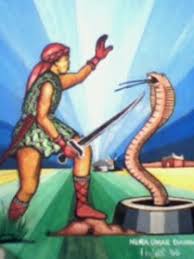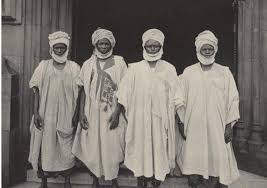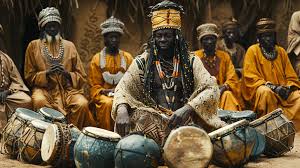The Origins of the Hausa People in Northern Nigeria.
The Hausa are one of West Africa’s largest ethnic groupings, predominantly residing in Northern Nigeria and parts of Niger. The Hausa have had a significant impact on the political, economic, and social environment of Northern Nigeria, thanks to their rich cultural and historical legacy. Their beginnings are a combination of myth, migration, and historical evolution, resulting in a distinct culture noted for its intricate social structures, trading networks, and Islamic heritage.
Mythological Origins: The Story of Bayajidda.
According to Hausa tradition, the legendary hero Bayajidda, whose story is both myth and history, founded the Hausa people. According to tradition, Bayajidda was a prince from Baghdad (or Yemen in other versions) who fled to Kanem-Bornu, a kingdom located to the east of modern-day Nigeria. Following a disagreement with the monarch, he continued his voyage westward, eventually arriving in the ancient city of Daura, which is now part of modern-day Katsina State in Northern Nigeria.

The legend recounts that upon his arrival in Daura, Bayajidda killed a sacred snake (known as “Sarki”) that terrorized the people by blocking their water source. In gratitude, the queen of Daura, Magajiya Daurama, married him. Their union is said to have produced a son named Bawo, who became the ancestor of the seven original Hausa city-states, also known as the Hausa Bakwai. These seven states—Daura, Kano, Katsina, Zaria (Zazzau), Gobir, Rano, and Biram—are considered the core of the Hausa civilization.
While the Bayajidda legend is deeply culturally significant to the Hausa people, historians believe it is a symbolic portrayal of the region’s integration of many peoples and cultures rather than a literal account of their origins.
Migration and Historical Development.
The Hausa people’s historical origins are more complex, involving migration patterns, commerce, and the emergence of early communities. The Hausa nations are thought to have emerged between the 10th and 11th centuries, however the exact timing is disputed. Some historians believe that the Hausa people evolved from the merging of indigenous West African populations with Berber, Arab, and Tuareg influences from the north and east, as well as other ethnic groups who came to the region over time.
The Hausa people’s location in Northern Nigeria, on the southern edge of the Sahara Desert, made them ideal intermediates in trans-Saharan trade routes. The Hausa city-states flourished as trading hubs, connecting West Africa to North Africa and the Mediterranean. Gold, leather, textiles, and kola nuts were traded for salt, horses, and other North African commodities. This trade network considerably increased the wealth and political power of the Hausa states.
The Rise of the Hausa States.
By the fourteenth century, the Hausa states had grown into sophisticated urban centers, each with its own ruler and political structure. Despite their shared language, culture, and Islamic faith, the Hausa city-states acted independently and frequently competed for land and resources.
Islam was brought to the region at this time, mostly through trade and migration from North Africa. By the 15th century, Islam had been thoroughly ingrained in Hausa culture, impacting their legal, educational, and governmental systems. The establishment of Islamic institutions and the promotion of Islamic education became vital to Hausa identity, and the region grew into a major center of Islamic learning in Western Africa.
Sokoto Caliphate and Fulani Influence.
With the establishment of the Sokoto Caliphate by Fulani Islamic reformer Usman dan Fodio in the early nineteenth century, a watershed moment in Hausa history occurred. In 1804, Dan Fodio launched a jihad against the Hausa rulers, accusing them of deviating from authentic Islamic customs. The Fulani, who had been incorporated into Hausa society for ages, eventually ousted the Hausa monarchs, and several Hausa territories were subsumed into the newly established Islamic Caliphate.

Though the Fulani grew in power, Hausa culture, language, and traditions remained influential. Over time, Hausa and Fulani identities blended, resulting in a unified Hausa-Fulani identity that still exists in modern Northern Nigeria.
The Hausa people’s origins are a complex combination of mythology, migration, and historical events. From the fabled Bayajidda to the rise of mighty Hausa city-states, the Hausa people have long played an important role in West African history. Today, the Hausa are one of Nigeria’s most significant ethnic groups, and their cultural and historical legacy continues to affect the region.

